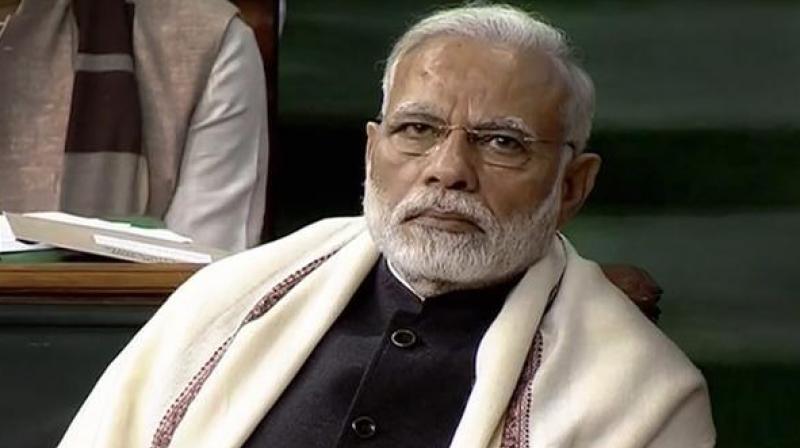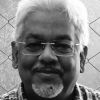Modi playing with fire, driving J&K to despair

Instead of carrying forward the legacy of former Prime Minister Atal Behari Vajpayee, Prime Minister Narendra Modi’s actions have seriously eroded the constituency for peace, dialogue and reconciliation in Jammu and Kashmir.
The border with Pakistan has been deliberately heated up. The argument for an offensive posture is that the Pakistan Army must pay a cost for promoting terrorism through proxies. Since last year, there has been a heightened exchange of fire across the Line of Control (LoC) segments running through the Kashmir Valley and the Jammu region as well as the international boundary.
Pakistan has tended to concentrate its fire downwards of Poonch on the LoC where it has an advantage over India and across the international boundary. In Uri, however, India has an advantageous position. It is here that the conflict was escalated from small arms fire and mortar shelling to heavy artillery fire exchange on February 22 and 24 between the two armies. As the positions of military advantage of the two sides are almost balanced equally, the increased firing eventually evens out, making it a pointless exercise.
However, the “surgical strikes” of September 2016 and the Army’s Operation All Out against militants in Kashmir indicated a definite shift from earlier strategies. The unexpectedly muscular response on the border was primarily aimed at Mr Modi’s radical Hindutva constituency. In Kashmir itself, terrorist attacks, including by suicide fidayeen, have increased; a greater number of security forces’ personnel were killed for every militant death; and militant recruitment increased. According to the state government, 280 local youngsters joined militancy in the last three years with 126 joining in 2017 alone — up from a mere six in 2013.
Nevertheless, having failed to deliver on the economic front, given the mess created by demonetisation and the hasty implementation of the Goods and Services Tax, increasing agrarian distress and rising unemployment, Mr Modi needed to rejig the nationalist narrative to maintain and expand the structure of his communalised politics.
One of the tropes in this reinvented nationalism is to paint Pakistan as the source of all Indian woes in the Kashmir Valley. A supine mainstream media played the cheerleader in creating a nationalist paranoia to suit Mr Modi’s political ends.
Why didn’t Pakistan withdraw its hand? Perhaps the Pakistan Army too had to signal to its domestic constituency that it was being tough on India, when international pressure was mounting against Pakistan for its role in Afghanistan and for using Islamic terrorist groups as its strategic instruments.
The communal configuration of the border is also pertinent to understanding the decisions of the Indian and Pakistani security forces. In the Kashmir Valley the villages on the LoC, such as in the Haji Pir sector in Uri, are Muslim villages. A heightened conflict here leads to Muslim migration, putting Pakistan at a disadvantage vis-à-vis what it sees as a potential political constituency. The Indian Army focuses its fire on Pakistan in this area.
In Jammu, barring a few Muslim Gujjar villages, the border villages have Hindu populations, especially in Poonch, Rajouri and Nowshera. By concentrating fire on Hindu majority villages, it appears that the Pakistan Army wants to inflict political damage on the the Bharatiya Janata Party by precipitating Hindu migration from the border.
Mr Modi’s policy of heating up the border with Pakistan, however, has little purchase within J&K. While the presence of Pakistani terrorists in the state and their continued infiltration is undeniable, it is equally true that there is also an autonomous growth in militancy.
This has little to do with Pakistan and much to do with India. Kashmiri society is filled with anger over the denial of free speech; constitutional rights and justice. Lack of opportunities for the youth and discrimination both within the state and outside it further contribute to the simmering anger. Kashmiri youngsters feel that nothing has changed for four generations.
Mr Modi has, however, chosen to ignore the political dimension of the Kashmir issue and deliberately converted it into a problem of Pakistan-sponsored terrorism. This leads to the branding of all Kashmiris as pro-Pakistan.
The rest of India must understand that the people of the state of J&K have no role in either initiating the conflict on the border or ending it. What happens on the LoC is as much news to them as it is for the rest of India. It may affect the people of north Kashmir to the extent that they become unwitting collateral victims of the conflict, but for those in south Kashmir — where militancy is most acute — it makes no difference.
The government’s approach has eroded both a healthy federal relationship between the state and the Centre as well as the social base for a peaceful settlement. Within Kashmir, independent political voices have become muted with fear. Without space for peaceful political protests, political groups like the Hurriyat are no longer able to urge the youth to shun violence. Even parents have lost moral control over their boys who take up arms. Their heroes are Burhan Wani, now dead, and Zakir Musa, whose regular video messages have a large viewership among the young.
Mr Modi’s politics of polarisation has also set Jammu on fire. The rape and murder of an eight-year-old Bakkarwal Muslim girl has been communalised. BJP leaders are framing the issue as nationalists versus anti-nationals. The BJP and the Hindu Ekata Manch led a protest using the tricolour against the arrest of the alleged rapist and murderer, a special police officer and a Hindu. Such opportunist communalisation of Jammu will destroy its social fabric and provide further reasons for the growth of militancy in the Valley.
Prime Minister Modi’s politics in J&K might save him in the rest of India but it is setting the state on fire, besides raising military tensions with Pakistan. He and his military commanders may think that they can carefully calibrate their “jaw-breaking response” (“munh tod jawab”) but these processes could easily slip out of control.

